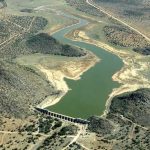
Bank of Namibia updates Parliamentary Committee on economic outlook and financial initiatives

The Governor of the Bank of Namibia (BoN),Johannes !Gawaxab recently appeared before the Parliamentary Standing Committee on Economics and Public Administration to provide a comprehensive report on the Bank’s operations and the economic landscape of the country. The session aimed to fulfill the statutory reporting requirements outlined in the Bank of Namibia Act of 2020.
During the meeting, !Gawaxab delivered an overview of both domestic and global economic projections. He indicated that Namibia’s GDP growth is expected to slow to 3.7% in 2024 due to factors such as drought and weak global demand for minerals.
However, a rebound to 4.1 percent is anticipated in 2025. Globally, the economy is forecasted to grow steadily, with advanced economies experiencing modest improvements and emerging markets maintaining stable growth rates. Nevertheless, the global growth trajectory remains below pre-pandemic levels, posing challenges for Namibia’s export-driven sectors.
!Gawaxab underscored the importance of maintaining price stability to support sustainable economic growth. He provided historical insights, noting correlations between repo rate and inflation rate fluctuations and significant socio-political and geopolitical events. He highlighted that while recent repo rate increases may appear unprecedented, current levels are significantly lower than those of previous decades.
The governor also highlighted the success of the SME Economic Recovery Loan Scheme, which has provided critical support to small and medium enterprises across various sectors. With a total facility of N$500 million, the scheme has disbursed N$378.9 million to distressed businesses, aiding them in sustaining operations, protecting jobs, and contributing to overall economic recovery.
In terms of financial stability, !Gawaxab reported that Namibia’s financial system remained resilient and sound despite slower economic growth and higher interest rates. The banking sector maintained a strong position, exceeding prudential requirements and achieving solid profitability.
Looking ahead, !Gawaxab reaffirmed the Bank’s commitment to its mandate and strategic goals. He emphasized the importance of collaboration with the Parliamentary Standing Committee in ensuring the continued stability and development of Namibia’s financial sector.
The discussions also covered the implementation of new financial regulations and recent initiatives such as the Instant Payment Project. Additionally, inquiries were made about the Bank’s interventions in advising the Government on oil and gas ventures and the impact of public debt on the country’s financial status.
The engagement with the Parliamentary Standing Committee on Economics and Public Administration plays a vital role in monitoring and recommending measures to support Namibia’s economy, natural resources, and public administration.












































